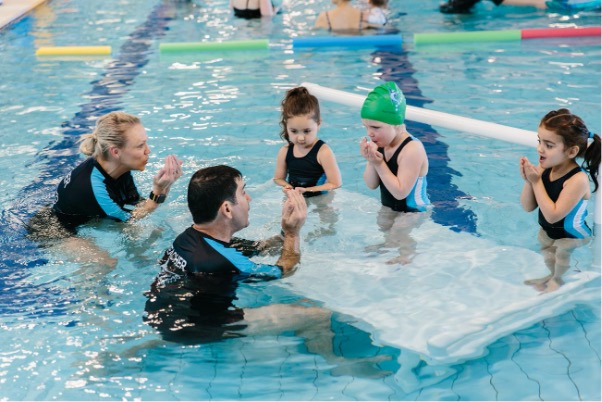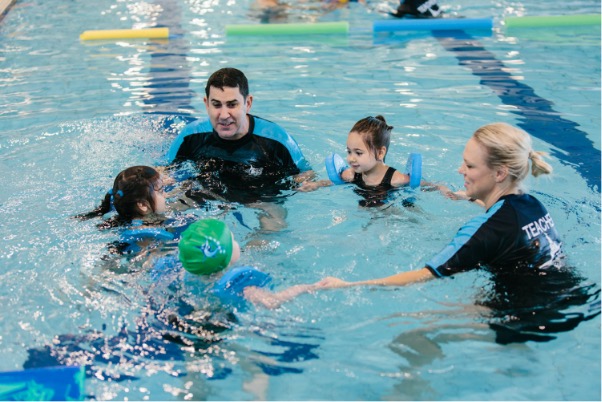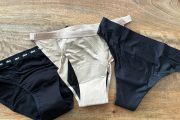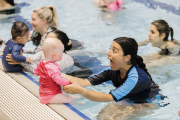Study Finds Early Swimming Lessons Can Help Make Kids Smarter

Study Finds Early Swimming Lessons Can Help Make Kids Smarter
Sponsored post
Whilst most parents are aware of the importance of teaching children to swim and to be safe around water, many of us may be surprised to hear that early swimming lessons can also give kids a competitive edge when it comes time for school. Researchers at Griffith University, looked at 7,000 kids who took swimming lessons in the USA, Australia, and New Zealand, and found that children who took swimming lessons before the age of 5, were between 6 – 20 months ahead of their peers across all developmental areas.
- Intellectually, children who participated in regular swimming lessons were on average, 6 months ahead of their peers in counting and mathematic reasoning.
- Physically, they were 7 months ahead in motor development.
- Socially, they were 15 months ahead in socio and emotional development.
“It does appear that children who participate in swimming lessons achieve a range of milestones earlier than normal populations,” lead researcher Professor Jorgensen explains in the interim report of ‘Early years swimming: Adding capital to young Australians.’ However, she warns that the industry is largely unregulated, with considerable variation among swim schools. According to the report, “if the child is to gain in other areas of child development, the swim environment and swim teachers/lessons need to be of a consistently high quality.”
So, what is it about swimming lessons that boosts a child’s development so substantially?
Speaking of the study findings, Paul Sadler of Paul Sadler Swimland was not surprised that children who attend formal swimming lessons were excelling in the areas of numeracy and literacy explaining that his teachers use language that relates to both throughout all lessons. This means that young children are exposed to and gain an understanding of terms that they may not encounter at home.
Professor Jorgenson noted the ‘complex and rich use of language’ that was observed during a swim lesson with 3-year-olds in the report.
T: big splash with two feet (holds up 2 fingers)
T: after one-two-three, we are going to push off with our hands like a rocket
T: eyes down in the water
T: we are kicking around in a circle Clinton, so kick out to me then around then back to the start
T: Ben arms out straight like a pencil
T: Alex, turn around so you can kick on your back, eyes up

“In these interactions, it is possible to see how the swim environment is creating significant opportunities for developing key concepts that are foundational in mathematics learning,” the report explains. “Not only are the words present, but the child must use body movements to link with the words, thus making for deeper learning. The rich repertoire of words linked to actions aid in the building of knowledge and language that are valued within the school context.”
“Being in control of the learning environment is a high priority and this requires strategies for keeping children focused and on task. For example, children may be required to come to the edge of the pool, sit and wait until their lesson commences. Once in the pool, the teacher gives instructions and provides cues for different activities – such as kick, kick, kick, stop. When hearing the cue words, young children learn to comply with the instructions.”
By being exposed to swimming lessons from a young age, children learn to listen and follow instructions before they even start school. This skill set allows them to transition to formal schooling more easily than many of their peers, and significantly enhances their ability to learn. Added to this of course is the fact that early swimming lessons reduce the risk of drowning by up to 88%n – which is why enrolling children in swimming lessons at a reputable swim school is a no-brainer for many parents.
Visit Paul Sadler’s Swimland website to find a centre near you.













